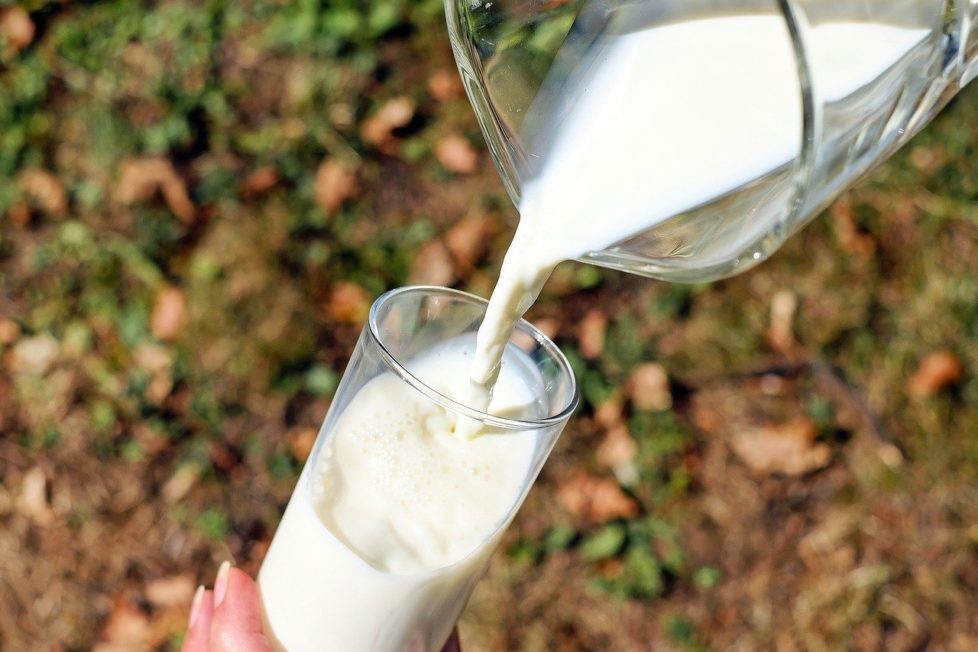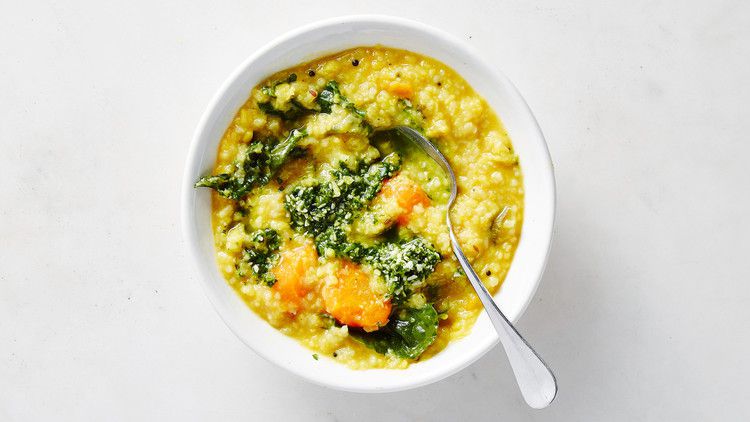Top 10 Foods You Should Not Eat With Milk – Advance Guide


The world has changed a lot. People once who craved for all the junk are looking for healthy foods nowadays. Milk is one such complete food but we need to know things not to eat with milk.
Milk is often referred to in almost each and every diet unless you are diary allergenic. We always know the right foods but never have the knowledge of the wrong pairings of the foods we take.
We need to take good foods that are nutritious but at the same time, we should also know with which food it should not be taken in order to receive its nutrients. Let us now learn about what not to eat with milk and what not to eat after milk.
Bananas are everyone’s favorite fruit but one food not to eat with milk. And having a banana with milk is our easy-to-go breakfast because in our busy lives we sometimes have some milk and pick up bananas to fill our stomach.
But studies are telling us that the banana, when combined with milk, causes some toxins which are very harmful to human bodies. Just like a banana, milk also has the amino acid tryptophan. If you mix warm milk with a banana, the banana will likely firm up just a bit and its flavor will begin to develop.
They may cause cold, cough, sinus, congestion, allergies. So even though they had a good taste together with the effect in the post digestion. As both are heavy foods it is recommended to take them separately at different times.
Hence do not pair them together and have it. Now everyone must know why not to eat a banana with milk!
Cherries are cute little fruits that look colorful, tasty but foods not to eat with milk. They are sweet in taste and kids are often fond of these fruits. They are not only tasty but are rich in nutrients, antioxidants, and anti-inflammatory compounds.
They are capable of giving instant energy and also helps in improving the heart functioning. They are rich in fiber. Due to its sweet taste, we tend to mix them with milk and consume. But both of them have an allergic reaction which causes sickness.
They also sometimes lead to death. Cherries are highly acidic in nature which causes a bacterium when combined with fresh milk. So better we are careful and not to have them together.
We should know what fruits not to eat with milk. List of sour fruits which we see in our day to day life is orange, lemon, lime, grapefruit, tamarind, amla, green apples, plums, star fruit, pineapple.
Citrus fruits are acidic. They have the capacity to curdle warm milk immediately as soon as it collides. Cold milk is a little better but then as citrus or sour fruits have high sugar in them.
It affects the digestion process and the sugars may ferment. So we need to avoid sour or citrus fruits from mixing with milk. You should have a minimum 15 to 20 minutes’ gap between the fruit and milk.
It is recommended to have milk after the fruit is consumed. So take this precaution next time when you are having them together.


Yeast is a single-cell organism that converts its food from sugar and starch through fermentation, into carbon dioxide and alcohol. But we should learn why not to eat after drinking milk. It’s the carbon dioxide that makes baked goods rise.
Foods that contain yeast are Processed and cured meats, aged cheese, dried fruits, gravy and stock cubes, processed fruit juices, condiments, vinegar containing ingredients and Alcohol (brewer’s yeast).
Milk contains natural sugars such as lactose, so it can support a lively growth of yeast without any added table sugar. Fresh or cake yeast should react and begin to grow immediately, as soon as it’s well moistened by the warm milk.
There is a saying “An egg today is better than a hen tomorrow”. If you have eggs daily, you will see how your body transforms. Eggs are a very good source of inexpensive, high-quality protein.
More than half the protein of an egg is found in the egg white, which also includes vitamin B2 and lower amounts of fat than the yolk. Eggs are rich sources of selenium, vitamin D, B6, B12 and minerals such as zinc, iron, and copper.
As per Nutritionist Mehar Rajput, FITPASS, “Eggs are a great source of protein, amino acids, and healthy fats and milk consist of protein and calcium. Eating cooked eggs with milk is a great way to balance out the protein intake. Raw eggs are safe to have with milk as long as it is pasteurized.
We should have knowledge about why not eat fish with milk. There are people who cannot survive having meat every day. Sometimes we have snacks like junk having meat and have coffee along with them.
Some fancy cafes and restaurants often provide teas with some meat snacks. Nowadays we are also consuming milk in the form of milkshakes or cold coffees along with some sandwiches or burgers which contain meat in them.
Studies are revealing that consuming meat and dairy products like milk is as harmful as smoking. As both foods are rich in proteins and causes severe health issues. In some countries, it is also prohibited to cook both meat and milk.
There are also stories that tell that Rabbi’s disease has been caused due to this combination. So be very careful while having your meat so that you done consume milk later.


Yogurt is one of the foods not to eat with milk. It’s a dairy product made by fermenting milk with yogurt culture. It provides protein and calcium, and it may enhance healthy gut bacteria.
Health benefits range from protecting against osteoporosis to relieving irritable bowel disease and aiding digestion, but these depend on the type of yogurt consumed.
Yogurt which is a fermented product should not be consumed with milk as it would block the channels that result in infections, tummy problems, and ill-health. Food combinations can play an important role in maintaining your gut health, promoting good digestion and overall health.
While the individual consumption of these two does not cause many problems, combining these two can cause some headaches. According to studies, the combination of yogurt and milk can result in improper digestion.
Beans and legumes also come under things not to eat with milk. They’re packed with protein and fiber while low in fat and calories. Eating more legumes as part of a healthy diet can help lower blood sugar, blood pressure, heart rate, and other heart disease and diabetes risks.
No doubt both the foods are very good sources of proteins and vitamins. But Milk contains a considerable amount of lactose, much more than the undigested sugars in beans, but the bean analogy can perhaps explain some of the symptom variability we see with lactose intolerance. So they have to be taken alone but cannot be combined.


Radish comes under the category of what not to eat after drinking milk. Do you like radish? I heard most of the answers No. Most of them don’t like a radish. But it still has many health benefits.
Radishes are high in potassium, which can help lower your blood pressure. Irrespective of these benefits we are not supposed to combine this with Milk. Radish heats up your inside while dairy is cooling.
Also, consuming dairy in itself is a complete food and should not be combined with any other foods because it delays the process of digestion.
Apart from this, if radish has been used in certain foods, then milk should not be drunk immediately after this, because by doing this milk may be poisonous and there is a possibility of skin diseases.

Kitchari is an ancient Ayurveda meal consisting of Mung beans and rice cooked into porridge. It is also one of the foods not to eat with milk. It nourishes all the tissues of the body.
Kitchari is the preferred food to use when fasting on a mono-fast or while going through cleansing programs such as panchakarma. Kitchari is excellent for detoxification and de-aging of the cells.
But this is not a good option to have with milk. This texture is rich in proteins and cannot be consumed with dairy products like Milk which is also rich in proteins. So when you are having this dish make sure you are not having milk or coffee along with this.
You are what you eat. It’s very important to have good knowledge of what foods can be taken at what time and in what amount and in which combination. According to a Delhi-based nutritionist Anshul Jaibharat, milk should not be teamed with other protein sources as it could cause heaviness and digestive issues in some people.
“Those who are looking to lose weight should steer clear of this combination,” noted Anshul. However, this combination proves beneficial for people who want to gain weight as well as for growing kids.
A milk allergy is the body’s abnormal response to the proteins found in cow’s milk. Milk allergy is most common among infants and young children. So it is very important to know what not to eat with a milk allergy.
Milk is a very good food try it to consume it alone and stop having it with any other ingredient add sugar or honey to enhance its taste. Have a healthy and safe life!
